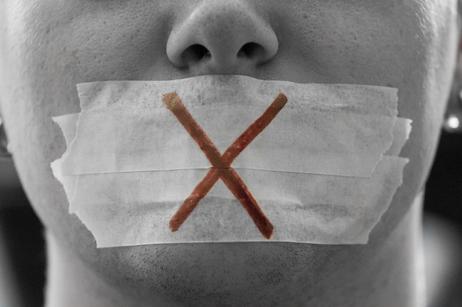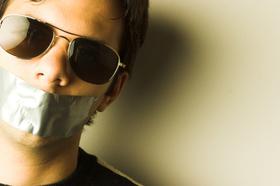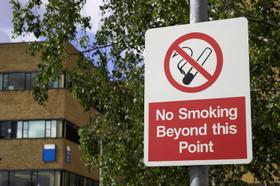Christian Parks, a Christian student attending Thomas Nelson Community College in Virginia, has filed a lawsuit against his school for prohibiting him from preaching on campus. According to the Christian Post, Parks’ argument is that the school violated his “fundamental rights to free speech, free exercise of religion, due process, and equal protection of the law.” The lawsuit further contends that the school prohibited the plaintiff from preaching on campus for fear that his religious views would offend others and prompt complaints.
The college, which is part of the larger Virginia Community College System, maintains a specific policy regarding student demonstrations. In order to stage a demonstration on campus, students are required to be a member of an on-campus student organization and must get permission to pose a demonstration at least four days in advance. The school maintains that the issue at hand is not regarding what Mr. Parks was saying on campus, but that he did not follow proper protocol by failing to get permission to speak ahead of time. Parks’ legal team, the conservative-leaning Alliance Defending Freedom disagrees. Joining the ADF in supporting Mr. Parks’ complaint is the Virginia Chapter of the American Civil Liberties Union, which released a statement saying that students deserve a first-rate college education, “which is impossible without a free exchange of ideas on campus.”
This video looks at preaching on campus.
An Anti-Free Speech Trend
In March 2014, a group of professors at the University of California at Santa Barbara confronted a student who was holding a political sign while standing quietly on campus. When the student refused to put the sign down, a professor ripped it out of the student’s hands, took it to her office, and cut it up. Other colleges have taken less confrontational steps to diminish students’ rights regarding free speech by instituting authoritarian policies. In 2009, Yale students were prevented from wearing t-shirts that displayed the F. Scott Fitzgerald quote, “I think of all Harvard men as sissies.” At Tufts University, students can be censured for quoting specific passages from the Quran. At Harvard, incoming freshmen are encouraged to sign an oath promising that they will act and speak with civility and inclusiveness.
Many of the on-campus anti-free speech trends are borne out of the desire of college administrators to have an air of civility and political correctness on campus, a movement that began in the 1980s. In an effort to reduce the number of incidents of hate speech, racially charged protests, and sexual harassment, many colleges instituted strict codes governing free speech on campus. While these codes were intended to improve the campus climate, which is a very noble goal, critics argue that these policies do more harm than good because they trample students’ First Amendment rights to free speech. And in the case of Christian Parks, critics claim that such policies also violate students’ Constitutionally guaranteed right to freedom of religion.
Free Speech Zones
To attempt a balance between civility and free speech, many institutions of higher learning have created “free speech zones” on campus, where students, faculty, and staff can gather to say whatever they want. Proponents of free speech zones on college campuses purport that they provide a safe way to balance free speech, which is a fundamental right, and the need to maintain a safe environment on campus.
However, detractors are quick to point out that free speech zones are a backhanded way of preventing free speech on the vast majority of the campus grounds. These free speech zones are oftentimes in a far-off corner of campus, away from any students a protestor or demonstrator may wish to reach. According to the Foundation for Individual Rights in Education (FIRE), these free speech zones do not protect free speech, but actually violate students’ Constitutional rights for free speech and peaceful assembly. FIRE further reports that as many as one in six campuses have a free speech zone.
Should Preaching Be Banned?
Although one in six college campuses restrict freedom of speech in some way, that number is actually down sharply from a decade ago, when an estimated three out of four campuses had restrictive policies regarding the expression of students’ First Amendment rights. Thus, support for expressing one’s beliefs on a college campus seems to be growing.
This video defends the idea of preaching on campus.
In fact, Virginia, the state in which Christian Parks was told by school officials that he was not allowed to preach on campus, passed a bill to make outdoor spaces at the state’s colleges “public forums” that are First Amendment friendly – for free speech, religious activities, and assembly, to name a few. The bill, which was passed unanimously by both houses of the state legislature and signed into law by the governor, is thought to be the first of its kind in the United States. With support from conservatives and liberals alike, the Virginia legislation seems to point to a climate that is supportive of on-campus speech, including preaching about one’s religious beliefs.
Questions? Contact us on Facebook. @communitycollegereview















